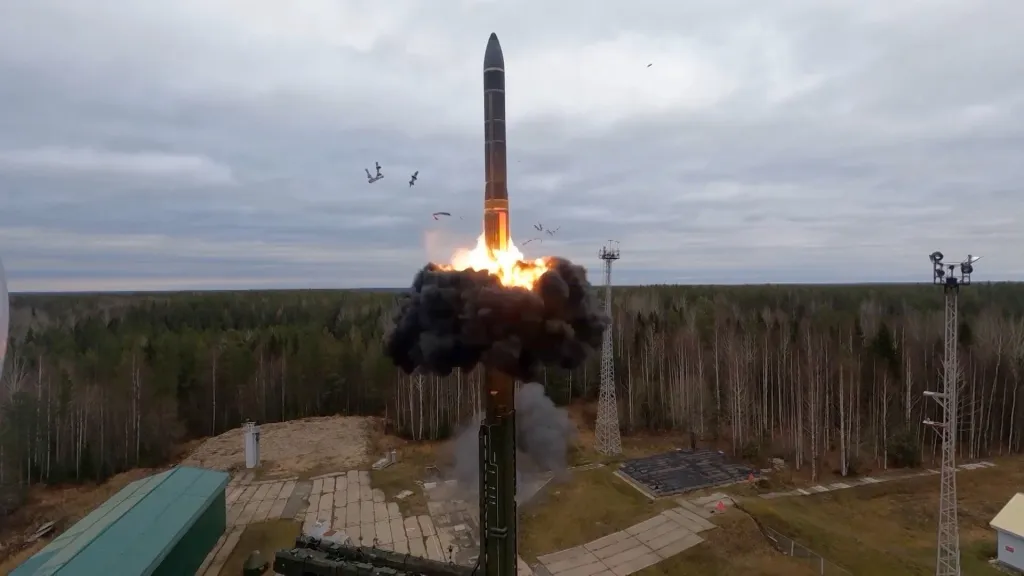
On Thursday, November 21, 2024, the ongoing conflict between Russia and Ukraine reached a dangerous new level. Russia launched an intercontinental ballistic missile (ICBM) targeting the city of Dnipro in central-east Ukraine. This unprecedented move marks the first time Russia has deployed such a powerful weapon in the conflict, raising international concern and condemnation.
Damage and Immediate Response
The missile, launched from Russia’s Astrakhan region, was part of a larger barrage. It included six other missiles aimed at Ukrainian infrastructure and civilian areas. Ukrainian air defense forces managed to intercept and destroy six of the seven missiles. However, the ICBM struck its intended target, causing significant damage to an industrial facility and a rehabilitation center. Two people were reported wounded in the attack.
Heightened Hostilities
This escalation follows recent intensified hostilities. Ukraine has been utilizing U.S.-supplied long-range missiles against Russian military positions. The increased use of advanced weaponry on both sides has intensified fears of further escalation and broader regional instability.
Ukrainian President’s Condemnation
In response to the attack, Ukrainian President Volodymyr Zelensky condemned Russia’s actions as a “blatant act of aggression.” He called for immediate international intervention. “The launch of an ICBM at a civilian target is a war crime,” Zelensky stated in a televised address. “We call on the global community to respond decisively to this escalation and to support Ukraine in our fight for sovereignty and peace.”
Russian Justification
Meanwhile, Russian officials have defended the missile launch. They claimed it was a necessary response to “ongoing Ukrainian provocations and attacks on Russian territory.” The Russian Ministry of Defense issued a statement. They asserted that the ICBM launch was aimed at “neutralizing strategic threats” and maintaining national security.
International Reaction
The international community has reacted with alarm to the development. NATO Secretary General Jens Stoltenberg called for an emergency meeting to address the crisis. He emphasized the need for a unified response to Russia’s actions. “This use of an ICBM is a grave violation of international norms and poses a significant threat to global security,” Stoltenberg said. “We stand with Ukraine and will take necessary measures to ensure the protection of our allies.”
The United Nations has also expressed deep concern. Secretary-General António Guterres urged restraint and dialogue. “We are witnessing a dangerous escalation that could have catastrophic consequences for the region and beyond,” Guterres warned. “It is imperative that both sides cease hostilities and engage in meaningful negotiations to prevent further loss of life and destruction.”
Humanitarian Concerns
As the situation develops, the impact on civilian populations continues to be a primary concern. Humanitarian organizations are mobilizing to provide aid to those affected by the recent attacks. Efforts are focusing on medical assistance, shelter, and psychological support for the injured and displaced.
The launch of an ICBM by Russia signifies a worrying turn in the conflict. It highlights the urgent need for a diplomatic resolution. The international community’s response in the coming days will be critical in determining the future trajectory of this deeply entrenched and increasingly volatile war.
Stay tuned for more updates as the situation unfolds.

